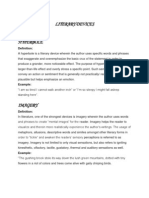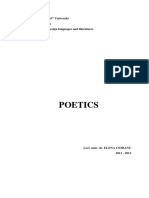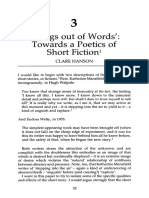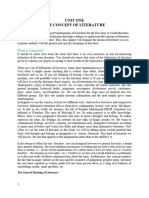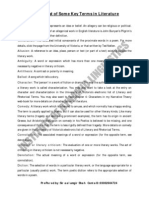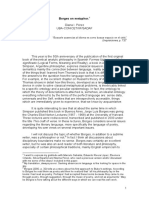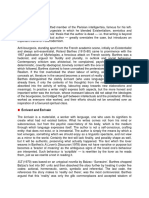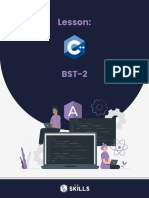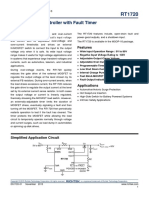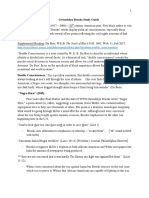0% found this document useful (0 votes)
15 views36 pagesLecture Material
The document discusses the postmodern condition of storytelling, emphasizing the challenges artists face when all narratives seem to have been told. It explores the concepts of parody, self-reflection, and the role of the reader in creating meaning, particularly through the lens of Roland Barthes' 'Death of the Author.' The analysis of 'A Sudden Story' highlights themes of freedom, forgetting, and the subversion of traditional narrative structures, suggesting a need for new interpretations and a revival of fairy tales in contemporary literature.
Uploaded by
keturahchetty6Copyright
© © All Rights Reserved
We take content rights seriously. If you suspect this is your content, claim it here.
Available Formats
Download as PDF, TXT or read online on Scribd
0% found this document useful (0 votes)
15 views36 pagesLecture Material
The document discusses the postmodern condition of storytelling, emphasizing the challenges artists face when all narratives seem to have been told. It explores the concepts of parody, self-reflection, and the role of the reader in creating meaning, particularly through the lens of Roland Barthes' 'Death of the Author.' The analysis of 'A Sudden Story' highlights themes of freedom, forgetting, and the subversion of traditional narrative structures, suggesting a need for new interpretations and a revival of fairy tales in contemporary literature.
Uploaded by
keturahchetty6Copyright
© © All Rights Reserved
We take content rights seriously. If you suspect this is your content, claim it here.
Available Formats
Download as PDF, TXT or read online on Scribd
/ 36














